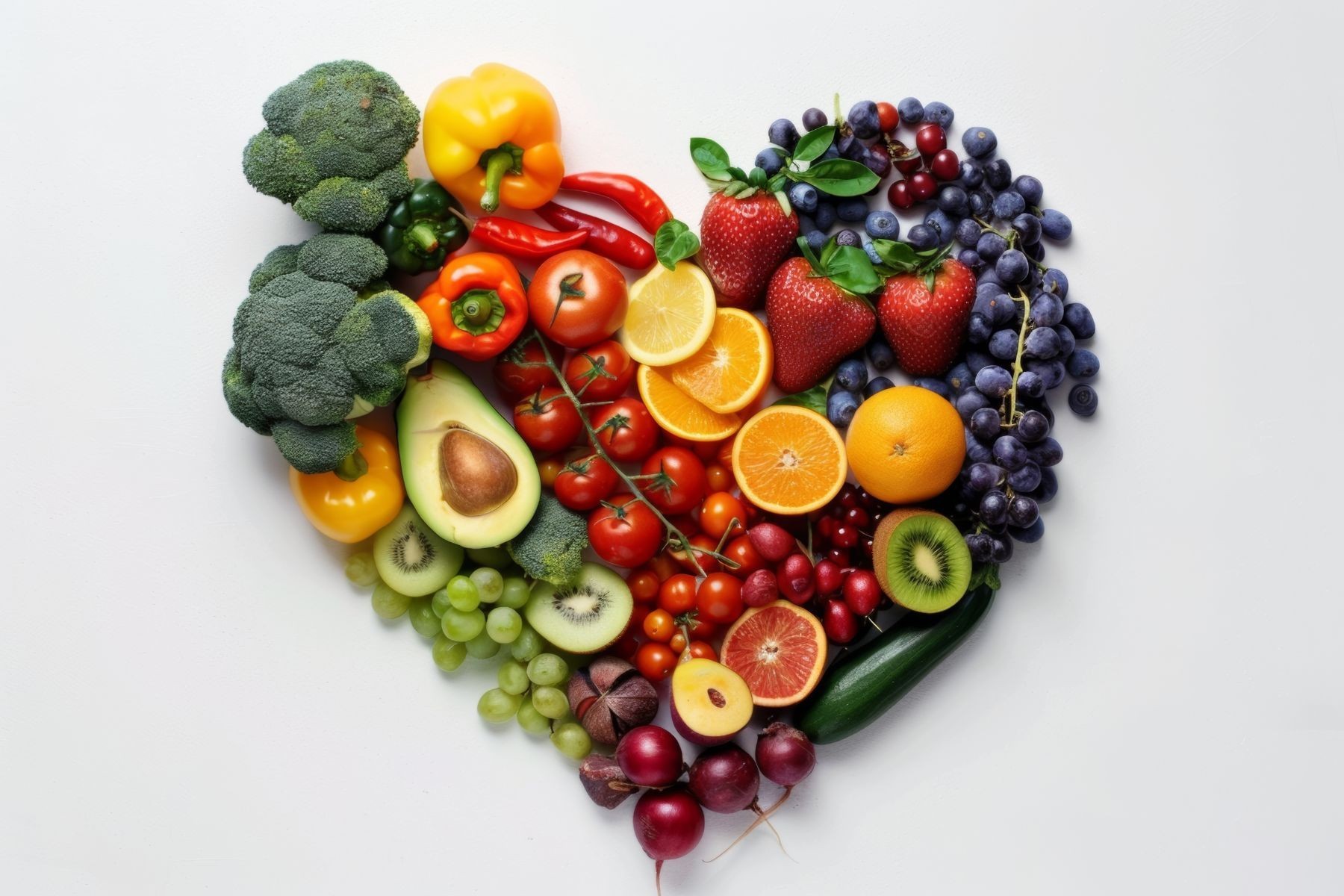Your heart is at the centre of your wellbeing, both physically and emotionally, and every food and lifestyle choice you make directly affects the way your heart and blood vessels function.
In time for World Heart Day on 29th September, Glo's resident Nutritional Therapist Sara Jubb has written about how diet and lifestyle can support your cardiovascular health, and we’ll offer some simple, practical advice that you can start using right now.
Your heart is literally the core of your being
In fact, the word “core” comes from the Latin word cor, which means “heart”.
The heart is often described as the essence of our spiritual being and is a symbol of compassion, wisdom, love and truth. Our language reflects this: we speak of feeling “heartbroken”, we “pour our hearts out” when we want to be hear,d and we “set our hearts on something” when we pursue a dream. The heart is where we connect deeply with others and with ourselves.
At the same time, the heart is also the essence of our physical being. Every day, it pumps thousands of litres of blood to every corner of the body - carrying the oxygen, nutrients and hydration that keep us alive.
When we care for our heart with wholesome food, movement, connection and self-care, we are not only protecting our physical health but also honouring its spiritual significance as the centre of compassion, vitality and joy.
Nutrition for your heart
When using nutritional therapy to support heart health, we’re usually looking to do the following:
- Improve blood vessel integrity
- Ensure healthy clotting
- Balance blood pressure
- Reduce inflammation
- Balance cholesterol
- Balance blood sugar
The foods you eat can directly influence all of these areas, which not only reduces your risk of heart disease, but also helps you to feel stronger and more energised, sleep better, have an improved mood and a better response to stress.
The key nutrients for a healthy heart are:
- Healthy fats: Omega-3s from oily fish, nuts and seeds and monounsaturated fat from olive oil can reduce inflammation, balance cholesterol and support healthy blood vessels
- Fibre found in vegetables, fruit, wholegrains, beans and pulses binds to cholesterol and helps to remove it from the body.
- Plant compounds in nuts, seeds, wholegrains and vegetables called phytosterols can help to block cholesterol absorption.
- Antioxidants from brightly coloured fruit and vegetables, green tea and spices protect blood vessels from damage.
- B vitamins, especially those from green leafy vegetables, reduce homocysteine, a compound that is linked to an increased risk of heart disease.
- Magnesium, found in nuts, seeds, green vegetables and pulses, supports heart muscle relaxation and rhythm.
- Balanced sources of protein such as beans, pulses, nuts, seeds, fish or ethically raised meat and eggs can help to regulate blood sugar.
So, what should you actually be eating?
Base your meals around vegetables, fruit, wholegrains, nuts, seeds, legumes and olive oil.
Be sure to include purple foods like berries, grapes, and beetroot that support healthy circulation, and potassium-rich foods such as bananas, avocados, and celery can help to lower blood pressure. Garlic and olive oil are natural blood pressure regulators.
To reduce inflammation, include oily fish, walnuts, tomatoes and colourful fruit and vegetables. Dark chocolate and green tea are also rich in protective polyphenols.
Oats, beans, garlic, mushrooms and seeds can lower LDL ( the so-called “bad” cholesterol) while increasing HDL (“good” cholesterol) and leafy greens, tomatoes and garlic all help maintain healthy blood flow and support healthy clotting.
And just as important, know what to avoid. Ultra-processed foods, refined sugars, processed meats, hydrogenated oils and excessive salt or caffeine all increase inflammation and place extra stress on the cardiovascular system.
Lifestyle Habits for a Happier Heart
Nutrition is only one piece of the puzzle. Your heart also responds profoundly to your environment, stress levels and relationships. Here are some healthy habits to introduce into your day:
-
Spend Time in Nature
Research shows that spending time outdoors lowers blood pressure, reduces stress and boosts mood, all of which will have a positive impact on your heart. Try walking in the park, sitting under a tree or starting a small garden. Even houseplants or herbs on your windowsill can bring the calming energy of nature into your day.
-
Get Moving
Movement is one of the most powerful ways to strengthen the heart. Aim for at least 150 minutes of activity per week. That could mean brisk walking, cycling, dancing or Pilates - anything that gets your heart rate up and brings you joy.
-
Prepare food with love
Cooking from scratch at home allows you to choose nourishing ingredients and bring gratitude to the process. Take a moment before meals to appreciate the effort and energy that went into getting the food to your plate.
-
Share food with others
The act of eating together strengthens relationships and nurtures your emotional wellbeing. Share a meal with family, invite a friend to cook with you or take some food to an elderly or unwell neighbour. Human connection is as vital for the heart as nutrients.
-
Prioritise self-care
Your heart thrives when you reduce stress. Simple practices like deep breathing, meditation or massage can switch the body into a calmer state, lowering blood pressure and easing tension. Try to do something every day that brings you joy - buy yourself some flowers or find something every day to make you laugh out loud. Even wearing your favourite colour can lift your mood and lower stress hormones.
Putting It All Together
Caring for your heart is about creating balance, not about strict rules or deprivation. It’s eating vibrant, whole foods rich in protective nutrients, moving your body regularly, nourishing your relationships and looking after your emotional wellbeing and taking time to rest and have fun.
Your heart is more than a muscle. It’s a symbol of life, connection and vitality. By choosing foods and lifestyle habits that nourish your heart, you’ll not only reduce your risk of heart disease, but you’ll also spread a bit of love!
Written by Sara Jubb
About Sara
Sara is a Nutritional Therapist, Naturopath and Coach with a background in magazine and national newspaper publishing. She has delivered corporate wellbeing programmes, spoken publicly on health and personal development, and coached individuals towards business success, career growth, and improved wellbeing. A lifelong learner, she enjoys Pilates, nature walks, batch cooking and daily meditation.
Her professional qualifications include EMCC Global Accreditation (Practitioner level), Level 5 Coaching Diploma, Diplomas in Nutritional Therapy and Naturopathy, Mental Health First Aid, and she is also a qualified Pilates Matwork instructor.





